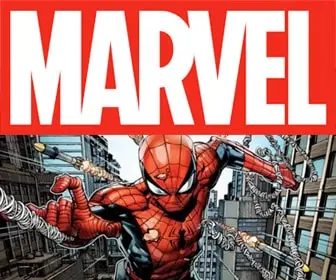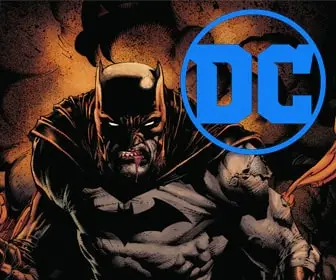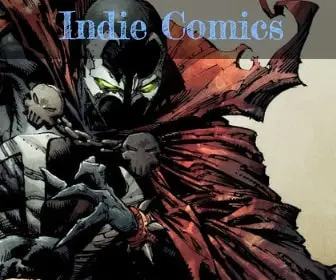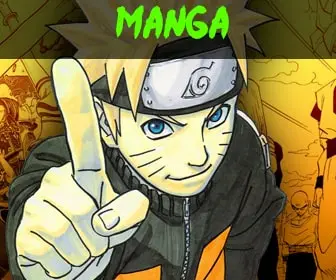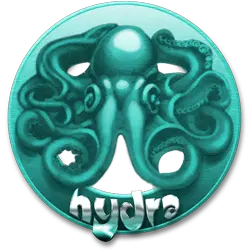
Common Mistakes New Indie Comic Creators Make

Don’t Trip Up! Common Mistakes New Indie Comic Creators Make (And How to Avoid Them)
Hey future comic book legends! Do you dream of creating your own awesome comic? Maybe you have a superhero idea, a cool fantasy world, or a funny story bursting to get out. That’s fantastic! Making your own comic, also known as “indie publishing,” is one of the most exciting things you can do. You get to be the boss of your own story!
However, just like learning to ride a bike, you might hit a few bumps along the way. Lots of new comic creators make similar mistakes. But guess what? You don’t have to! This blog post will show you the most common slip-ups and, more importantly, how to zoom right past them. Get ready to learn how to make your comic creation journey smooth and super successful!
Mistake 1: Not Planning Your Story Enough
Imagine building a super cool treehouse without a blueprint. You might end up with wobbly walls or a roof that leaks! Making a comic is similar. Some new creators just jump in, drawing and writing as they go. This often leads to problems later on.
Why it’s a mistake: When you don’t plan, your story can get confusing. Characters might act differently from one page to the next. You might run out of ideas halfway through, or your ending might feel rushed. Readers notice these things, and it makes your comic less fun for them. It also makes things harder for you. You waste time redrawing pages or rewriting entire scenes because you didn’t think them through.
How to avoid it: Become a master planner! Before you even draw one line or write one word of dialogue, spend time on your story.
- Brainstorm Big Ideas: What’s your comic about? Who are your main characters? What’s the main problem they face? What’s the solution? Write down everything that pops into your head. Don’t worry if it’s messy.
- Outline Your Story: Think of your story like a journey. Where does it start? What exciting things happen in the middle? How does it end? Write down the main events of each chapter or section. This gives you a map.
- Create Character Bios: Know your characters inside and out. Give them names, ages, personalities, special abilities, and even their favorite food! The more you know them, the more real they feel on the page.
- Write a Script: This is super important for comics. A script tells you exactly what happens on each page, what the characters say, and what the drawings show. It’s like a movie script but for comics. Look up examples of comic scripts online. Many comic creators share free templates. A good script saves you hours of work later.
- Do Your Research: If your comic involves real history, science, or specific locations, research them! Accuracy makes your story feel more believable.
Remember: Planning takes time, but it saves you much more time and frustration later. It builds a strong foundation for your awesome comic!
Mistake 2: Trying to Do EVERYTHING Yourself (and Doing it All Perfectly)
Some new creators feel like they must do all the art, all the writing, all the coloring, and all the lettering themselves. And they want every single panel to be museum-perfect. While it’s cool to learn many skills, it’s also a fast track to getting burned out or never finishing your comic.
Why it’s a mistake: You are one person, not a whole comic book studio! Each part of making a comic – writing, penciling, inking, coloring, lettering – takes a lot of skill and time. Trying to master all of them at once often means none of them get done well. You might get frustrated because your art doesn’t look like your favorite professional artist’s work, or your lettering looks messy. This leads to giving up.
How to avoid it: Team up or simplify!
- Team Up! The best comics often come from teams.
- Find an Artist: If you love writing but drawing isn’t your strongest skill, find an artist! Many artists love bringing stories to life. You can look on art websites, social media groups, or even at local art schools.
- Find a Writer: If you love drawing but struggle with stories, find a writer! They can provide awesome scripts for you to illustrate.
- Consider a Letterer/Colorist: As you get more serious, you might work with a letterer (who puts the words on the page) or a colorist (who adds all the cool colors).
- Simplify Your Style: If you decide to do everything yourself, make peace with your current skill level. Don’t try to draw hyper-realistic superheroes if you are better at cartoony characters. Start simple! Maybe your first comic has a simple art style, or it’s even black and white. This lets you finish it and learn.
- Embrace “Good Enough” for Now: Your first comic probably won’t be perfect. And that’s okay! The goal is to finish it, learn from it, and make your next comic even better. Don’t let the idea of perfection stop you from creating at all.
Pro-Tip: When you work with others, make sure you talk clearly. Discuss ideas, deadlines, and how you will share any money you make. Having a simple agreement (even written on a napkin!) protects everyone.
Mistake 3: Underestimating the Time and Money It Takes
Creating a comic is not a quick weekend project. It takes a lot of time. Also, even if you do everything yourself, there are still some costs involved. New creators often think they can finish a 20-page comic in a month and that it won’t cost them anything. This simply isn’t true.
Why it’s a mistake: When you don’t realize how much time something takes, you quickly get overwhelmed. You might set impossible deadlines, feel like a failure when you miss them, and then lose motivation. Similarly, unexpected costs for printing, software, or even just art supplies can stop your project dead in its tracks. This discourages you.
How to avoid it: Be realistic and plan your resources!
- Time Management:
- Break It Down: Don’t just think “make a comic.” Think: “Write script for page 1-5,” “Draw pencils for page 1,” “Ink page 1,” “Color page 1,” “Letter page 1.”
- Estimate Realistically: How long does it really take you to draw one good page? Multiply that by the number of pages in your comic. Add time for editing, revisions, and breaks.
- Set Small Goals: Instead of “finish comic by next month,” try “finish two pages this week.” Smaller goals feel achievable and keep you moving forward.
- Schedule It: Set aside specific times each week just for your comic project. Treat it like homework or an important hobby.
- Budgeting (Even Small Budgets):
- Art Supplies: Pens, paper, digital drawing tablet, software (even free ones like Krita or GIMP). These all cost money.
- Printing: If you want physical copies, printing is a major cost. Look into “print-on-demand” services like Ka-Blam or ComiXology Submit for easier starting points. They print only when someone orders.
- Marketing: Even small things like setting up a website or buying a table at a local convention can add up.
- Collaborators: If you hire an artist, colorist, or letterer, factor their pay into your budget.
- Start a “Comic Fund”: Save a little money regularly just for your comic project.
Remember: It’s better to finish a shorter comic than to abandon a long one. Be patient with yourself and your process.
Mistake 4: Not Getting Feedback (Or Getting Too Much)
You pour your heart into your comic, and it’s your baby! It feels great. But sometimes, creators get shy about showing their work to others, or they listen to everyone and try to change everything based on every comment. Both can cause problems.
Why it’s a mistake:
- No Feedback: If no one sees your work until it’s finished, you miss out on catching mistakes early. A confusing plot point, a character that doesn’t make sense, or a messy drawing might go unnoticed until it’s too late. You might think it’s perfect, but readers might not understand it.
- Too Much Feedback: If you try to please everyone, your comic will lose its original spark. You’ll endlessly revise, never finishing anything. Different people have different tastes, and you can’t satisfy them all. You lose your unique voice.
How to avoid it: Find your “feedback sweet spot.”
- Choose Your Reviewers Wisely: Don’t just ask anyone. Ask people who read comics, especially those who enjoy similar genres to yours. Maybe a trusted friend, family member, or a fellow creator.
- Ask Specific Questions: Instead of “Is this good?”, ask: “Does this scene make sense?”, “Is this character’s motivation clear?”, “Can you tell what’s happening in this panel?”, or “Is the dialogue natural?”
- Get Feedback at Different Stages:
- Script Feedback: Does the story flow? Are characters consistent?
- Rough Art Feedback: Can people understand the action and emotions?
- Finished Page Feedback: Is everything clear and readable?
- Learn to Filter: Not every piece of feedback is useful. Listen carefully, consider the advice, but ultimately, youdecide what changes you make. If multiple people point out the same problem, it’s probably something you should fix. If only one person dislikes something, it might just be their opinion.
- Don’t Argue: When someone gives you feedback, don’t get defensive. Just listen. Say “Thanks for your thoughts!” even if you don’t agree.
Key Point: Feedback helps you see your comic through fresh eyes. It’s not about criticism; it’s about making your story the best it can be for your readers.
Mistake 5: Neglecting Marketing and Promotion
You finish your comic! Hooray! Now you just put it online, and people will magically find it and buy it, right? Nope! This is a super common dream, and a common mistake. If you don’t tell anyone about your comic, how will they ever know it exists?
Why it’s a mistake: There are millions of things online competing for people’s attention. If you don’t actively promote your comic, it will get lost in the noise. All your hard work on the story and art won’t reach anyone. This leaves you with a great comic that no one ever reads.
How to avoid it: Be your comic’s biggest cheerleader!
- Start Early: Don’t wait until your comic is finished. Start talking about it while you are making it! Share “work-in-progress” pictures, sneak peeks of characters, or little teases of the story.
- Use Social Media: Pick one or two social media platforms where you feel comfortable (like Instagram, TikTok, or X/Twitter for art). Post regularly. Use relevant hashtags like #indiecomics, #comicart, #webcomic, #makingcomics. Show your personality!
- Build a Simple Website/Blog: Even a free one from platforms like WordPress or Tumblr works. This gives people one central place to find all your information, your art, and links to buy your comic.
- Build an Email List: This might sound old-school, but it’s super effective. Offer a free wallpaper or a short comic strip if people sign up for your email list. Then, when you have a new comic or important news, you can tell your fans directly.
- Connect with Other Creators: Be friendly! Share other creators’ work you like. They might share yours back. Building a community helps everyone.
- Consider Conventions (Even Small Ones): If you can, go to local comic conventions or art fairs. You can get a small table, display your comic, and talk directly to potential readers. It’s a great way to meet people who love comics.
- Share Your Process: People love seeing how things are made. Post time-lapses of your drawing, talk about your writing process, or show off your script pages. This makes your journey relatable and interesting.
Remember: Marketing is storytelling too! You’re telling people why they should care about your comic. Be excited, be genuine, and people will notice.
Mistake 6: Giving Up Too Soon
This is probably the biggest mistake of all. Making a comic is hard work. It takes time, effort, and you will face challenges. Some days, you just won’t feel like drawing or writing. You might feel frustrated, or doubt yourself. If you let those feelings win, you will never finish your amazing story.
Why it’s a mistake: Every single professional comic creator you admire has gone through moments where they wanted to quit. If they had, we wouldn’t have their incredible stories today. Giving up means your awesome ideas stay stuck inside your head instead of becoming a real comic for people to enjoy.
How to avoid it: Develop a “never give up” attitude!
- Break Down Big Tasks: We talked about this before for time management, but it also applies to motivation. A giant task feels scary. Small tasks feel doable.
- Celebrate Small Wins: Did you finish a page? Hooray! Did you write a great dialogue scene? Awesome! Give yourself a small reward. This keeps you feeling positive.
- Take Breaks: Your brain needs rest! If you feel stuck or frustrated, step away from your comic for a bit. Go for a walk, play a game, read another comic. When you come back, your mind will feel refreshed.
- Remember Your “Why”: Why did you start making this comic? What story do you really want to tell? What characters do you love? Remind yourself of your passion when things get tough.
- Find a Support Group: Connect with other young creators online or in person. You can cheer each other on, share tips, and complain together when things are hard. Knowing you’re not alone makes a huge difference.
- Learn from Mistakes: If something goes wrong, don’t see it as a failure. See it as a lesson! “Okay, I learned that drawing 10 tiny characters on one page is too much for me right now.” Use that knowledge to do better next time.
- Focus on Finishing, Not Perfection: Your first comic doesn’t have to be perfect. Its biggest success is being finished. Once you finish one, you prove to yourself that you can do it. That confidence will power you through your next comic.
Most Importantly: Don’t let your inner critic win. That little voice that says “Your art isn’t good enough” or “Your story is boring” is lying to you. Everyone starts somewhere. Keep creating, keep learning, and keep sharing your unique voice with the world.
Final Thoughts: Your Comic Journey Awaits!
Creating your own indie comic is an incredible adventure. It challenges you, teaches you new skills, and lets you share your wildest ideas with others. Yes, you will make mistakes, and that’s okay! Even experienced creators learn new things with every project.
By knowing these common mistakes ahead of time, you already have a super advantage. You can avoid many of the common pitfalls and keep your comic journey fun and exciting. So, grab your pencils, open your laptop, and start creating! The world is waiting for your story. Good luck, future comic book rockstar!




